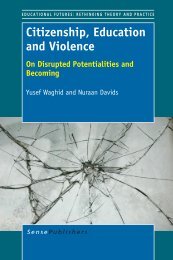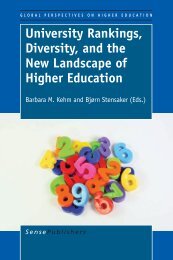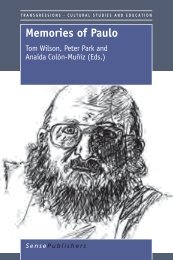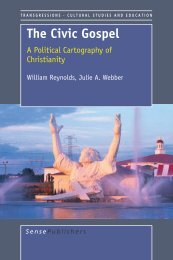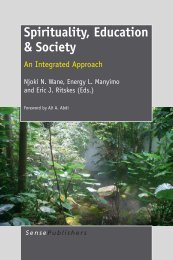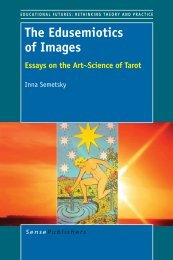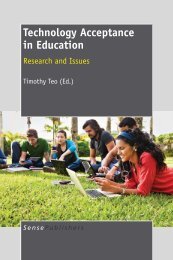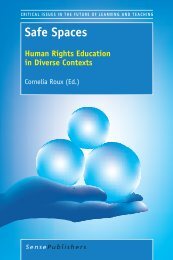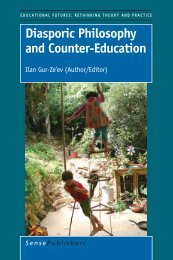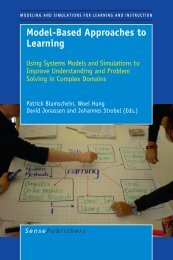Rupturing Concepts of Disability and Inclusion
Rupturing Concepts of Disability and Inclusion
Rupturing Concepts of Disability and Inclusion
Create successful ePaper yourself
Turn your PDF publications into a flip-book with our unique Google optimized e-Paper software.
FOREWORD<br />
<strong>and</strong> subjected it to painstaking critique. Using the metaphor <strong>of</strong> the patchwork quilt,<br />
Clapton directs <strong>and</strong> steers the reader through the ethical maze <strong>of</strong> inclusion. Her<br />
work concludes that the fundamentals <strong>of</strong> western philosophy have not afforded<br />
sufficient moral protection <strong>of</strong> people with disability so that inclusion becomes<br />
optional. This fundamental optional status rests on the assumptions that people<br />
with disability – especially those with an intellectual disability are not human, are<br />
not worthy <strong>of</strong> protection. If one is determined to be not human or less than human,<br />
a vegetable or creature or animal, then how can one be afforded protection <strong>of</strong><br />
human rights?<br />
This work is timely. While the conceptual work was originally begun some ten<br />
years ago as Jayne completed her doctoral work, a journey I had the privilege <strong>of</strong><br />
sharing, its relevance transcends time <strong>and</strong> indeed is perhaps more crucially<br />
important today. Current bioethics would tell us that the pr<strong>of</strong>ound injustice <strong>of</strong> a<br />
moral position that people with disability do not matter or should be ‘put down at<br />
birth’ confronts us all. Arguing that social inclusion has its roots in liberal<br />
egalitarianism, Jayne puts forward the view that this is indeed a risky position. She<br />
suggest that inclusion may well work in times <strong>of</strong> prosperity but that social<br />
inclusion can all too readily be diluted <strong>and</strong> that what is needed is a transformatory<br />
ethic that brings us to a position <strong>of</strong> integrality. With integrality there is no binary <strong>of</strong><br />
in or out, <strong>of</strong> wanted or not wanted, <strong>of</strong> good or not good, <strong>of</strong> included or excluded.<br />
Rather we find ourselves it a moral space where all are valued <strong>and</strong> all belong.<br />
For some <strong>of</strong> those engaged in the lives <strong>of</strong> people with disability whether as<br />
parents, friends, workers <strong>and</strong> services many <strong>of</strong> which continue to be underpinned<br />
by Christian values <strong>and</strong> their derivatives, this book will be confronting. It is not an<br />
easy read <strong>and</strong> does not contain easy ideas <strong>and</strong> concepts. How we then transform<br />
these ideas to actions that support imperatives for better lives for marginalised<br />
people, is perhaps even more confronting. But I thank Jayne for paving the path<br />
<strong>and</strong> bringing the critique to our attention. I hope we can ultimately enjoy a world<br />
where all people can truly belong as part <strong>of</strong> the richness <strong>of</strong> being human.<br />
Lesley Chenoweth<br />
15 th Pr<strong>of</strong>essor <strong>of</strong> Social Work, Griffith University<br />
November 2008<br />
xiv



